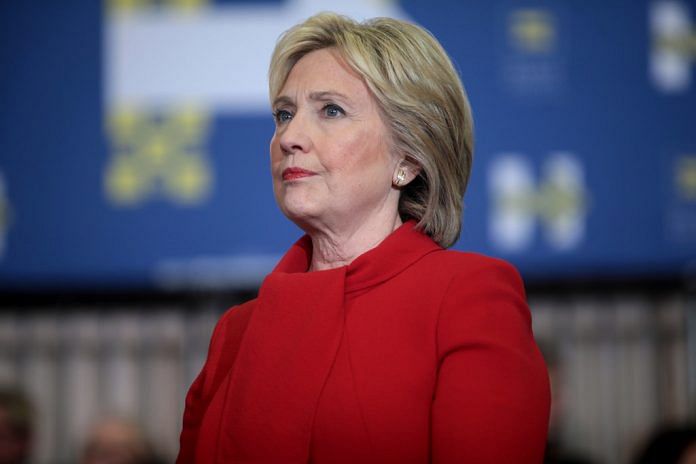The ‘strangest moment of Hillary Clinton’s life’
“It was mercifully brief … I was numb. It was all so shocking,” is how Hillary Clinton describes her ordeal when she had to call Donald Trump to concede the 2016 election. In What Happened, Clinton takes her readers through the whiplash of the last 24 hours of campaign.
She recalls Barrack Obama calling her and saying, “You’ve got it. I’m so proud of you,” during their last event together. When the voting tallies were coming in, she was taking a nap and her husband was “chomping on an unlit cigarette”. “The mood in the hotel had considerably darkened,” by then, she writes. When it was clear that Trump was poised to become the 45th president of United States, Obama asked her to concede and not drag out of the race. That call was “without a doubt one of the strangest moments of my life,” she writes.
A sexist ‘Iranian paradox’
Tearful and humiliating, is how one Iranian woman who was turned back after queuing up for two hours to watch a World Cup qualifier in Tehran, puts it. While both men and women were allowed to purchase the tickets, ultimately Iranian women were barred from entering the stadium due to a “technical glitch”. Oddly the “glitch” is perfectly aligned with the common Iranian practice of not allowing women to watch football matches played by men.
Syrian women, on the contrary, were allowed to watch the match between Iran and Syria, and cheer for their country. The silver lining? It is the first time that national newspapers came out in support of protesting women and gave the issue prominent coverage. One daily described it as the “Iranian Paradox”. “The host was left outside behind the doors, while the guest went inside the stadium,” it said.
Russia’s online notoriety
Russia was promoting hateful and divisive social and political messages on Facebook, the social media company. According to Facebook, a sum of$100,000 has been spent on about 3,000 ads on topics like race, immigration and equal rights over a two-year period by Russia.
While the ads, which stopped only in May 2017, did not back any political leader, they did direct users onto accounts spreading fallacious information. “The ads and accounts appeared to focus on amplifying divisive social and political messages across the ideological spectrum,” Facebook said in a blog post. The so-called Internet Research Agency is believed to be behind the accounts, even though Facebook has not yet confirmed that. The campaign was uncovered as a result of an internal investigation within Facebook on how it may have been abused during the 2016 US presidential election. Funnily, Russia was pretty much at the heart of those controversies as well.
Germany’s ‘church asylums’ for refugees
While the German police is trying to drive out refugees from the country, another German institution has come to their rescue. The country’s churches, which have played a critical role in giving humanitarian aid to refugees since 2015, are defending refugees more actively than before in order to prevent them from being deported. They’re not only housing the rejected asylum seekers in churches, but are also submitting legal appeals for their cases.
Yet, they’ve come under criticism from at least some Islamic organisations. Many of the “church asylum” beneficiaries have converted to Christianity. “I’m looking for a religion that doesn’t force, push or kill,” says a political refugee from Iran. Conversions are not just incidental, though. While they may be a side effect of church relief, they are also politically beneficial for asylum seekers who can assert deeper need for asylum for being at risk of religious persecution in their home country.
An international trend Pakistan cannot afford to ignore
If there is one thing from the BRICS summit that Pakistan cannot afford to ignore, it is this: Pakistan’s selective approach to fighting external militancy will no longer be tolerated by friends and foes alike. With the US already turning increasingly hostile towards its former ally, and the world’s leading emerging economies now joining the chorus in questioning Pakistan’s record in fighting militancy, terrorism and extremism, it is imperative that Islamabad took note if it wants to remain on the right side of international opinion.
While some allegations heaped on Pakistan may be overstated, as this editorial argues, “Too often external criticism has been used by the (Pakistani) state to deflect and deny legitimate critiques of its anti-militancy policy”. It must no longer do so. Banning militant groups must be followed up by genuine attempts to shut down their operations in all possible guises, and the fight against militancy ought to be made “smarter, harder and more purposeful”.



